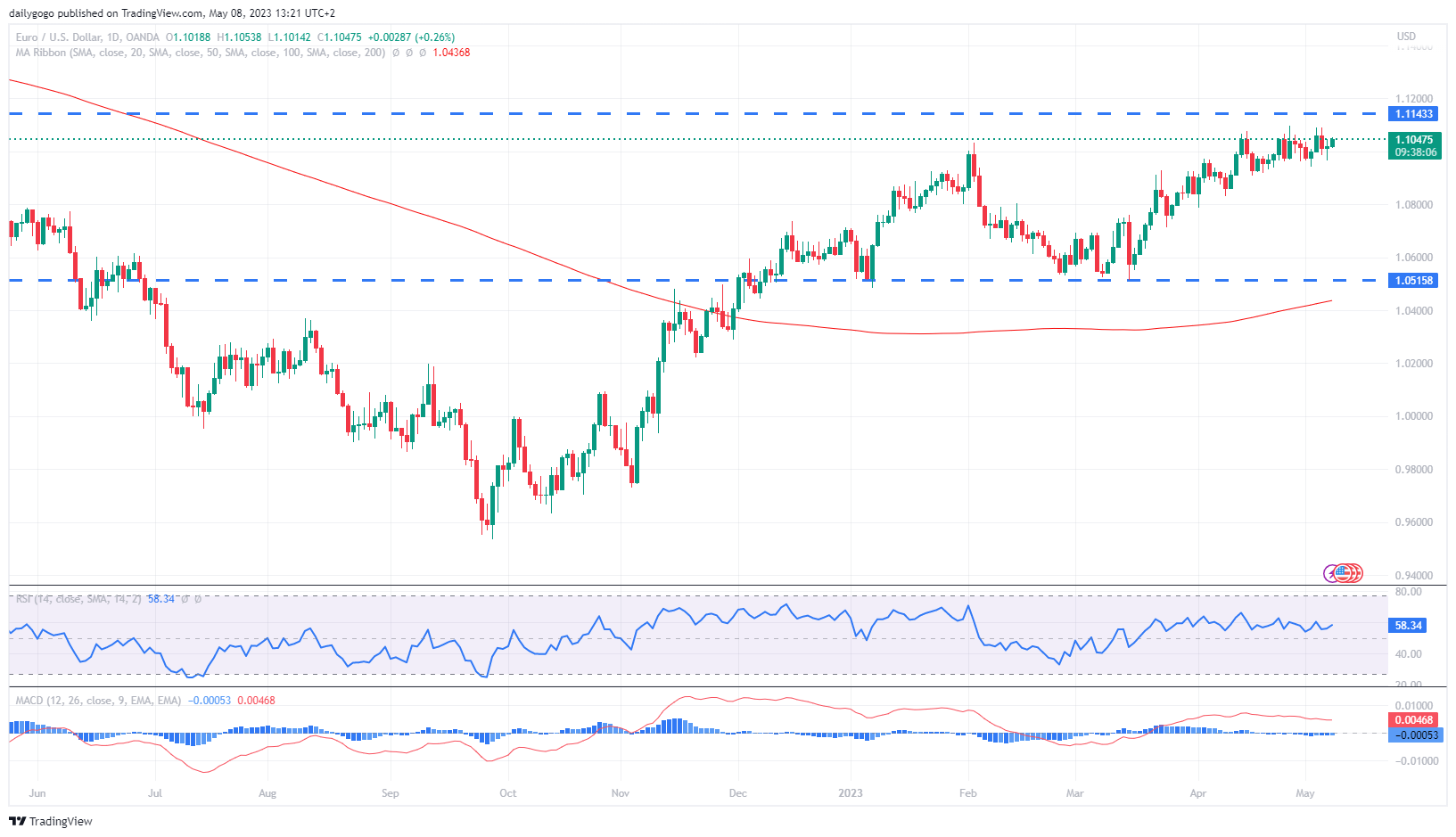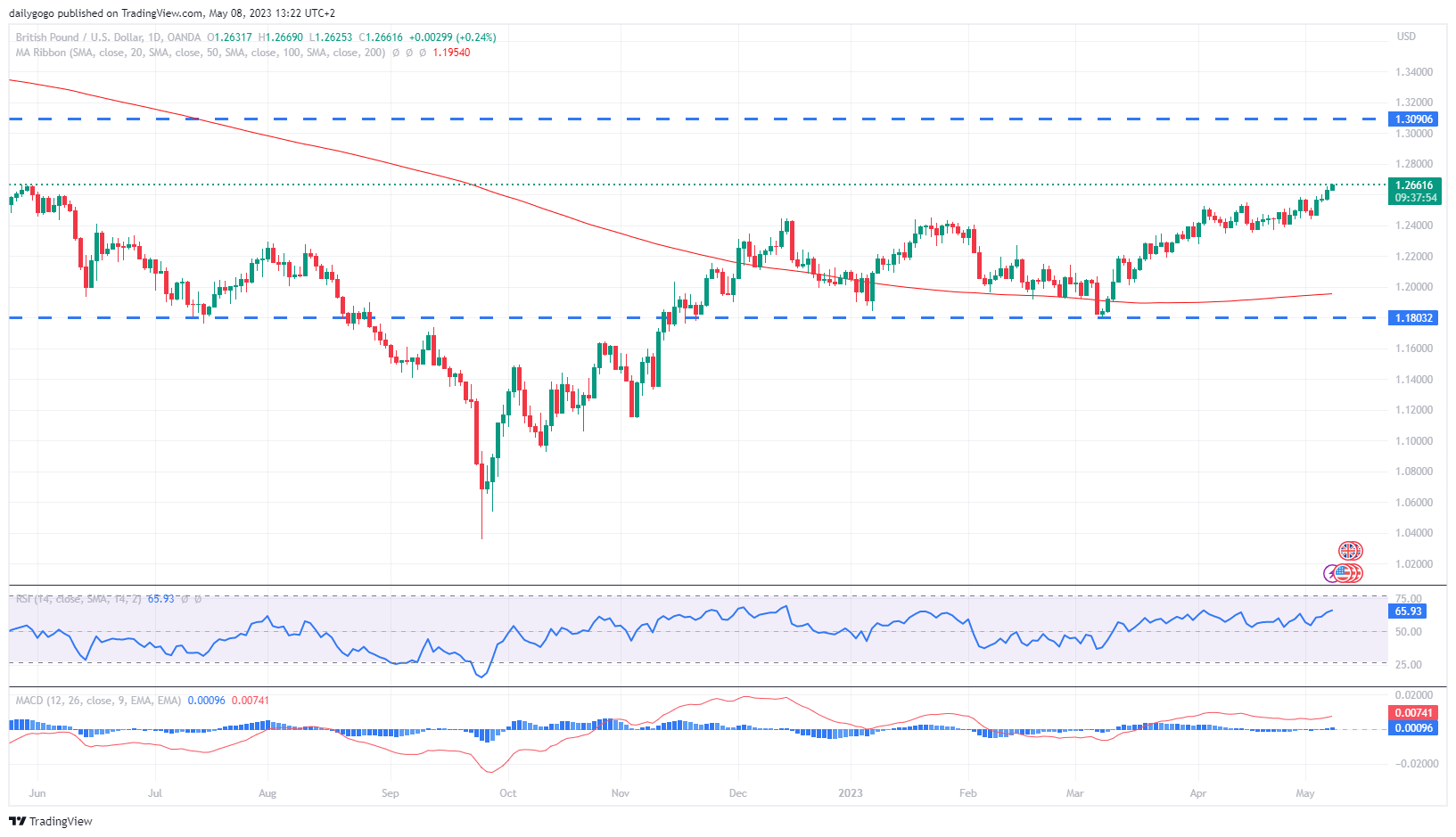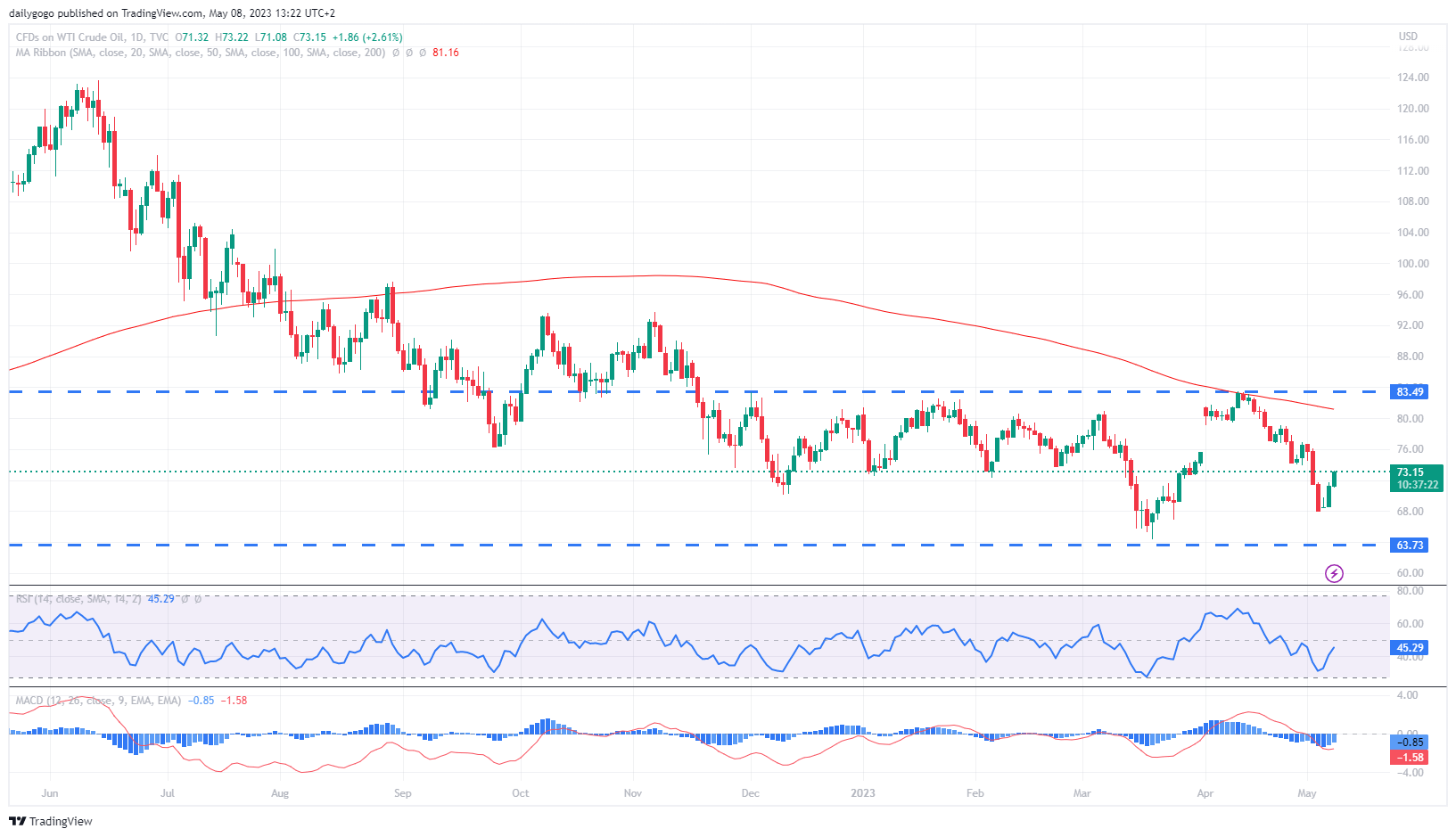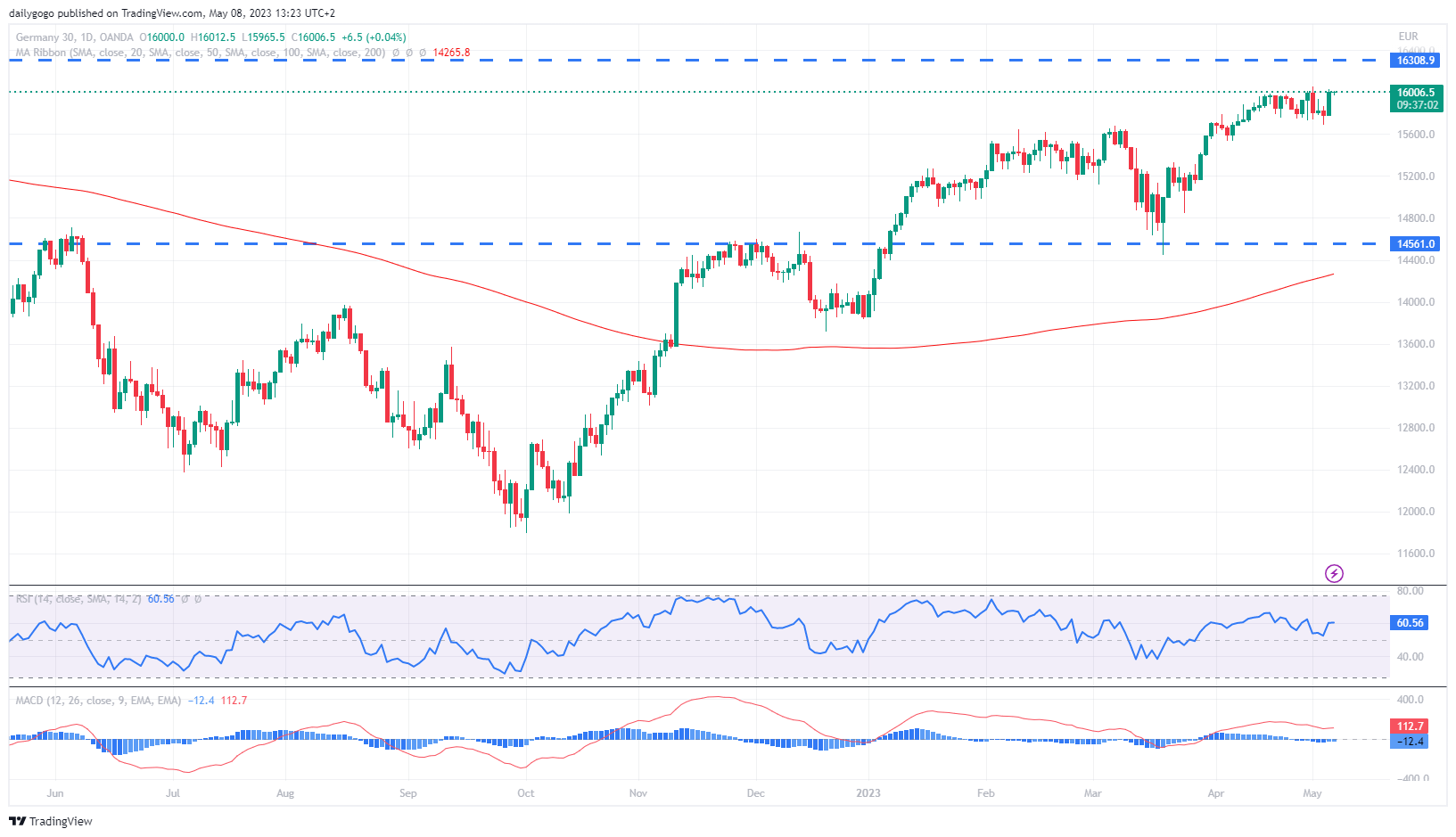EURUSD
- EUR/USD rose by 0.19% to 1.1038, as the European Central Bank increased its benchmark interest rates by 25 basis points and signalled that more hikes may be coming.
- Dutch Central Bank President Klaas Knot said that while the ECB’s interest rate hikes are starting to have an effect, more will be needed to contain inflation.
- EUR/USD had been in a steady uptrend since March and hit a 13-month peak of 1.1094 in late April but has been ranging since then.
- The dollar traded lower in early European trading on Monday, as investors awaited crucial inflation data later in the week and made bets on the Federal Reserve's future interest rate decisions.
- Technical analysis suggests that EUR/USD may continue to range until there is a clear breakout in either direction.
Closing statement: EUR/USD has been largely influenced by the actions and comments of the European Central Bank, with investors keeping a close eye on inflation data and the Federal Reserve's interest rate decisions for potential market movements.
GBPUSD
- Sterling rose to an 11-month high of $1.2652, ahead of an expected Bank of England rate increase on Thursday.
- BoE is expected to increase rates by a quarter point to 4.5% this week, after being the first to tighten back in December 2021.
- The DXY, which tracks the dollar against other major currencies, fell by 0.13%, while Dollar Index Futures dipped by 0.16%, both near their weakest levels in a year.
- The focus this week is on the US consumer price index inflation data, which is due out on Wednesday.
- The reading is expected to show that inflation eased slightly in April but remained well above the Fed's 2% annual target range.
| SMA (1D) | Neutral | |||
| RSI (1D) | Rising |
|
|
|
| MACD (1D) | Slightly Rising |
|
Closing statement:The upcoming Bank of England rate increase and US inflation data are likely to impact the GBP/USD exchange rate.
GOLD
- Gold prices bounced back after a sharp drop in the previous session due to stronger-than-expected nonfarm payroll data, which showed a strong U.S. labor market despite rising interest rates.
- The dollar was under pressure, with traders anticipating that it might have peaked along with U.S. interest rates while keeping an eye on inflation and loan data.
- Risk appetite improved following the payrolls reading, leading to a rally in stock markets and pressuring gold.
- Gold prices remained above $2,000 an ounce, benefiting from steady haven demand as U.S. bank collapses increased economic pressure from high-interest rates.
- Markets are preparing for a potential U.S. recession this year.
| SMA (1D) | Slightly Rising |
|
||
| RSI (1D) | Slightly Rising |
|
||
| MACD (1D) | Neutral |
Closing statement: Despite the recent dip in gold prices, the precious metal is still holding steady above the $2,000 an ounce mark, as investors remain cautious amid looming economic challenges such as inflation and a potential U.S. recession.
CRUDE OIL
- Crude oil prices rose on Monday, supported by the shift in market focus from U.S. recession fears to tightening supplies.
- Brent crude fell about 5.3% last week while U.S. crude fell by 7.1% despite Friday's rebound.
- Goldman Sachs analysts stated that concerns over near-term demand and elevated supplies were "overblown."
- OPEC+ members have planned a round of voluntary output cuts starting this month and the group holds its next meeting on June 4th.
- The market is closely watching the progress of OPEC+ output cuts as a key factor influencing oil prices.
| SMA (1D) | Slightly Falling | |||
| RSI (1D) | Rising |
|
|
|
| MACD (1D) | Neutral |
Closing statement: The crude oil market rebounded on Monday, supported by the shift in market focus towards tightening supplies and optimism over OPEC+ output cuts.
DAX
- European stock markets traded higher amid more corporate newsflow and ECB monetary policy decision.
- DAX index in Germany traded 0.1% lower, FTSE 100 in the UK climbed 1.1%, and CAC 40 in France rose 0.13%.
- German industrial production fell more than expected in March, due to the weak performance of the automotive sector.
- Commerzbank's chief economist Ralph Solveen said that German manufacturing is suffering from global rate hikes, which increases the risks of a recession in Germany.
- Recession fears continue to loom in Europe's largest economy.
| SMA (1D) | Slightly Rising |
|
| RSI (1D) | Neutral | |
| MACD (1D) | Neutral |
Closing statement:Despite the positive performance of other European markets, Germany's DAX index saw a slight dip amid concerns over the country's industrial production and the risk of recession.




